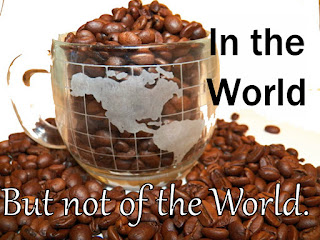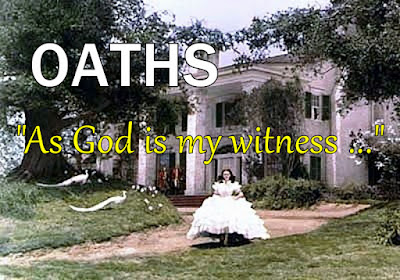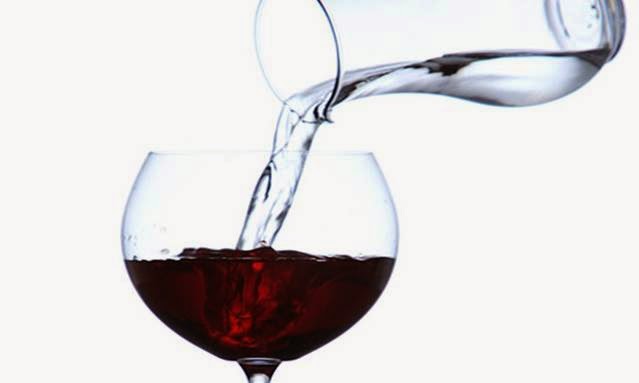WHAT WE BELIEVE AS UNITED METHODISTS... ABOUT HOLY COMMUNION
Romans 4:1-17
I Corinthians 12:23-26
Are you into genealogy? Have you ever had your DNA analyzed so you know what your ethnic origins come from. It's fund to discover that.
Understanding our spiritual DNA and where we're coming from may help us appreciate our traditions, like the sacrament of Holy Communion.
Usually we define DNA as what passes on physical traits, determining how how our bodies work and look. Yet, we are more than just biological machines. Our families and the communities we grew up in passed along values and traditions that also shape who we are.
In Romans 4:1-17 and I Corinthians 12;23-26, we find that our spiritual DNA as Christians and as United Methodists is made up of our faith, our belief in God and the traditions that help teach us about Jesus and God's grace and pass the faith from generation to generation. One of those traditions is Holy Communion.
WHAT WE BELIEVE AS UNITED METHODISTS
Holy Communion is part of the mystery of God. Mystery, in the Christian context, is what God discloses to us that is beyond our human capacity to understand by logic alone.
It is a mystery how God can take ordinary things, like bread and grape juice and make the experience of His grace certain and immediate. While we do not believe that the bread and juice, or elements, become the body of Christ, we do believe that Christ is present in the elements, present in and among us and present in our worship. Through the mystery of grace, God makes them be for us the body and blood of Christ in that as our bodies are nourished by the bread and juice, Christ's presence nourishes our soul -- it's a spiritual meal. In other words, Holy Communion is an outward sign of God's love at work in our lives.
Holy Communion is a gift of God's Grace (God's love at work in our lives). God's grace is not something we can give to ourselves, therefore we don't "take" Communion, we "receive" it. As a gift of God's love, it is given unconditionally and inclusively. That's why the United Methodist Church has an "open table." People do not need to belong to the United Methodist Church or to any church to receive Holy Communion.
*Christ our Lord invites to his table all who love him,
who earnestly repent of their sin
and seek to live in peace with one another.
It is Christ's table, and who are we to deny the opportunity to experience God's grace to anyone?
That's also the reason we use grape juice instead of wine. This allows those who do not drink alcohol, recovering alcoholic and children who have been instructed by their parents on the meaning of Communion to participate.
Holy Communion is a commandment give to us by Christ. Look at the imperatives we find in the words of institution from our Communion liturgy.
So, the next time you receive Holy Communion, come expecting to experience the mystery and the gift of God's grace. I don't know about you, but I can use all the grace I can get.
* From "A Service of Word and Table I," United Methodist Hymnal, pp. 6-11.
I Corinthians 12:23-26
Are you into genealogy? Have you ever had your DNA analyzed so you know what your ethnic origins come from. It's fund to discover that.
Understanding our spiritual DNA and where we're coming from may help us appreciate our traditions, like the sacrament of Holy Communion.
Usually we define DNA as what passes on physical traits, determining how how our bodies work and look. Yet, we are more than just biological machines. Our families and the communities we grew up in passed along values and traditions that also shape who we are.
In Romans 4:1-17 and I Corinthians 12;23-26, we find that our spiritual DNA as Christians and as United Methodists is made up of our faith, our belief in God and the traditions that help teach us about Jesus and God's grace and pass the faith from generation to generation. One of those traditions is Holy Communion.
WHAT WE BELIEVE AS UNITED METHODISTS
Holy Communion is part of the mystery of God. Mystery, in the Christian context, is what God discloses to us that is beyond our human capacity to understand by logic alone.
It is a mystery how God can take ordinary things, like bread and grape juice and make the experience of His grace certain and immediate. While we do not believe that the bread and juice, or elements, become the body of Christ, we do believe that Christ is present in the elements, present in and among us and present in our worship. Through the mystery of grace, God makes them be for us the body and blood of Christ in that as our bodies are nourished by the bread and juice, Christ's presence nourishes our soul -- it's a spiritual meal. In other words, Holy Communion is an outward sign of God's love at work in our lives.
Holy Communion is a gift of God's Grace (God's love at work in our lives). God's grace is not something we can give to ourselves, therefore we don't "take" Communion, we "receive" it. As a gift of God's love, it is given unconditionally and inclusively. That's why the United Methodist Church has an "open table." People do not need to belong to the United Methodist Church or to any church to receive Holy Communion.
*Christ our Lord invites to his table all who love him,
who earnestly repent of their sin
and seek to live in peace with one another.
It is Christ's table, and who are we to deny the opportunity to experience God's grace to anyone?
That's also the reason we use grape juice instead of wine. This allows those who do not drink alcohol, recovering alcoholic and children who have been instructed by their parents on the meaning of Communion to participate.
Holy Communion is a commandment give to us by Christ. Look at the imperatives we find in the words of institution from our Communion liturgy.
*On the night in which he gave himself up for us,
he took bread, gave thanks to you, broke the bread,
gave it to his disciples, and said:
he took bread, gave thanks to you, broke the bread,
gave it to his disciples, and said:
"Take, eat; this is my body which is given for you.
Do this in remembrance of me."
Do this in remembrance of me."
When the supper was over, he took the cup, gave thanks to you, gave it to his disciples, and said:
"Drink from this, all of you;
this is my blood of the new covenant,
poured out for you and for many
for the forgiveness of sins.
Do this, as often as you drink it,
in remembrance of me."
There is nothing in Scripture or in The Book of Discipline that says how many times we can or should celebrate the sacrament. John Wesley, the founder of Methodism recommended that we receive Communion any time we can, as often as we can. And this is why:this is my blood of the new covenant,
poured out for you and for many
for the forgiveness of sins.
Do this, as often as you drink it,
in remembrance of me."
"I
ask, then, Why do you not accept of his mercy as often as ever you
can? God now offers you his blessing; -- why do you refuse it? You
have now an opportunity of receiving his mercy; -- why do you not
receive it? You are weak: -- why do not you seize every opportunity
of increasing your strength?" John Wesley, "The Duty of Constant Communion"
So, the next time you receive Holy Communion, come expecting to experience the mystery and the gift of God's grace. I don't know about you, but I can use all the grace I can get.
* From "A Service of Word and Table I," United Methodist Hymnal, pp. 6-11.




Comments
Post a Comment